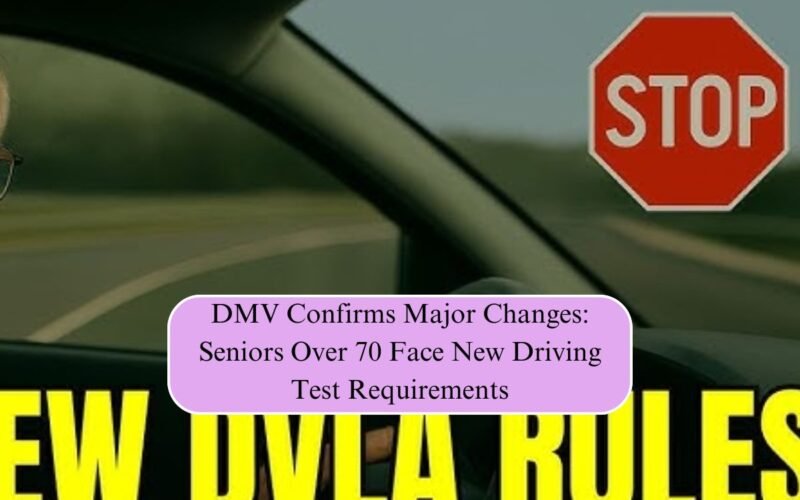Big changes are coming for senior drivers across the United States. The Department of Motor Vehicles (DMV) has officially confirmed new driving test requirements for individuals aged 70 and above, aiming to ensure road safety while addressing age-related changes in driving ability. These updates are already being implemented in several states and could soon expand nationwide, affecting millions of older drivers.
Why the DMV Is Changing the Rules for Seniors
The DMV’s decision follows growing concerns about road safety and driver health assessments among aging populations. As people live longer and remain active well into their 70s and 80s, the agency is re-evaluating how to balance independence with safety. Studies have shown that age-related factors like slower reflexes, vision decline, and medical conditions can increase accident risks. The new rules focus on identifying these issues early while still allowing capable seniors to retain their licenses.
What the New Driving Test Requirements Include
Under the updated regulations, seniors over 70 may need to undergo additional driving evaluations during their license renewal process. While specific rules vary by state, most DMVs are now introducing one or more of the following requirements:
- Mandatory vision and reaction-time testing during renewal.
- Short behind-the-wheel driving tests to assess real-world skills.
- Medical or cognitive screenings to evaluate fitness to drive.
- Shorter license renewal periods, often every 2–4 years instead of longer cycles.
These measures are designed to ensure that drivers remain alert, aware, and capable of operating a vehicle safely, rather than penalizing seniors unfairly.
Which States Are Affected
States such as California, Florida, Illinois, and Texas have already implemented modified testing or shorter renewal cycles for senior drivers. Others, including New York, Arizona, and Michigan, are reviewing similar policies for 2025. While each state determines its own DMV requirements, federal transportation officials have praised these updates as a proactive step toward preventing avoidable road accidents.
How to Prepare for the New DMV Driving Tests
Seniors approaching license renewal are encouraged to plan ahead. Experts recommend:
- Scheduling vision exams before renewal to ensure eyesight meets state standards.
- Practicing defensive driving techniques and updating knowledge of traffic laws.
- Taking a senior driver refresher course, often offered by AARP or local DMVs.
- Bringing medical documentation if you have a condition that could affect driving ability.
These steps can make the renewal process smoother and improve test performance.
What This Means for Older Drivers
While the new rules may seem strict, they are designed to support seniors in staying mobile safely. The DMV’s goal isn’t to remove licenses unnecessarily but to help identify those who may need additional support or restrictions. For many seniors, passing the updated tests will simply confirm that they’re still capable drivers, providing peace of mind to both them and their families.
FAQs
1. Who is affected by the new DMV driving test rules?
Drivers aged 70 and older are most affected by the new DMV testing requirements, though specific age thresholds may vary by state.
2. What new tests are required for seniors?
Most states now require vision checks, reaction-time tests, and possibly short driving evaluations or medical screenings.
3. Do I have to take a behind-the-wheel test at age 70?
In some states, yes. Certain DMVs are introducing short road tests during renewal for drivers 70 and older to assess safe driving ability.
4. Will my license renewal period change?
Yes, many states are shortening renewal periods for senior drivers, requiring renewals every 2–4 years instead of every 6–8 years.
5. Why is the DMV introducing these changes now?
The updates are based on safety studies showing higher accident rates among older drivers with unaddressed health or vision issues.

